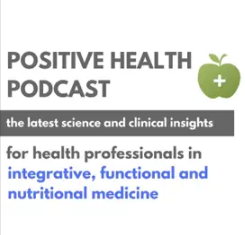
PMS – It’s Not All in Your Head
March 18, 2025
Perimenopause
March 18, 2025Stress and Digestion

In today’s busy, modern world we often experience stress and learning to support ourselves whilst meeting the demands of a busy lifestyle is critical to long-term health. Did you know that when your body is under stress, a series of physiological changes occur? While some stress enables us to achieve things, occasionally the pressure and tension can build up to the point where it starts to negatively impact on your physical and/or emotional wellbeing.
Stress… break the cycle
Prolonged stress is associated with alterations in brain neurotransmitters including the monoamines, noradrenaline, dopamine and serotonin, which may affect mood and outlook. Dysfunction of these due to prolonged stressful conditions has been associated with a range of central and peripheral disorders such as anxiety, depression, eating and sleeping disorders and decreased immune response (frequent colds and flus). Stress can also be a contributing factor in conditions such as peptic ulcers, headaches, migraines, asthma, fatigue and irritable bowel syndrome (IBS).
Fight or Flight
When stressed a mechanism known as the ‘fight or flight response’ diverts the energy necessary for digestion to the brain and limbs, so your body can concentrate on survival. This means that levels of stomach acid and digestive enzymes will be lower than they should be. Habits such as eating on the run; ‘dashboard dining’ or grabbing a sandwich at lunchtime but still working at your desk, may result in compromised digestion leaving you unable to adequately absorb its nutrients and you’ll end up feeling uncomfortable. If you find yourself skipping meals or eating on the run, you are putting yourself at increased risk of indigestion (heartburn), stomach cramps, flatulence and feeling bloated. You may also get loose bowel motions or even diarrhea as the stress hormones can make the rectum muscles relax.
Beneficial bacteria
Chronic stress can also upset your digestive system on a deeper level. In your gut, you have a delicate balance of bacteria and yeasts. Unfortunately, stress suppresses the levels of beneficial gut bacteria, particularly the strain lactobacillus causing them to be lower than they should be. Therefore, other pathogenic bacteria and yeasts can flourish. An example of this is the yeast candida albicans which is present in the intestinal tract and in normal healthy circumstances does not cause any problems. If it grows out of control then it can give symptoms such as food cravings, especially for sugar and bread, fatigue, a bloated stomach with excess flatulence, a ‘spaced out’ feeling or ‘brain fog’ and becoming tipsy on a very small amount of alcohol.
Although we tend to only think of the gut in terms of digestion it has many more functions. It has a crucial role in supporting our immunity and acts as an efficient barrier to invading organisms – up to 70% of your immune system is in your gut. Hence the importance of good levels of beneficial bacteria.
So what can we do to support it?
Chew Well The first part of digestion happens in your mouth, chewing triggers the release of amylase which digests carbohydrates. Chewing also signals other parts of your digestive system to release digestive enzymes and prepare to receive food. If you are not chewing well, the first part of breakdown in the mouth doesn’t happen, the digestive system doesn’t get the signal to prepare itself and the food will pass into the stomach in larger molecules than the stomach can really manage.
Eat a Rainbow Aim to eat a healthy varied diet to ensure you have all the essential vitamins and minerals you need to help your body cope with stress. When stressed our adrenal glands use up large amounts of Zinc, Magnesium and Vitamin C. If your digestion is poor or your diet is low in nuts, seeds and leafy greens, you may be lacking in these essential nutrients. Both zinc and magnesium are the most common deficiencies we measure in clinic. Approximately 60% of our clients show deficiency and could benefit from increasing vegetable intake and/or supplementation.
Increase fibre Choose whole grains which provide a nutrient rich source of fibre to nourish your healthy gut bacteria. Aim to cut back on white bread, pasta, rice and choose wholegrains like brown rice, oats and root vegetables.
Balance blood sugar Long gaps between meals can cause our blood sugar to dip which triggers the stress response, so aim to eat little and often. Reducing sugars and including slow release energy from healthy fats such as avocado, raw nuts, seeds and coconut oil with meals helps you feel more satisfied and keeps blood sugar levels stable reducing stress related mood swings.
Support your gut flora Fermented foods such as kefir, sauerkraut and natural live yoghurt can provide rich and diverse sources of healthy probiotics. Such microorganisms can influence health in numerous ways, including digestion, weight management, energy production and mental health.
Watch what you drink Avoid drinking excessive liquids with your meal as this dilutes the digestive enzymes in your saliva, making the first part of the digestive process less efficient. Aim to drink most of your liquids away from meals.
This article was originally written by Nutritionist Sorcha Molloy for Galway Now. Sorcha operates Positive Nutrition Galway and offers online appointments servicing Limerick, Clare, Galway Mayo and Sligo.


